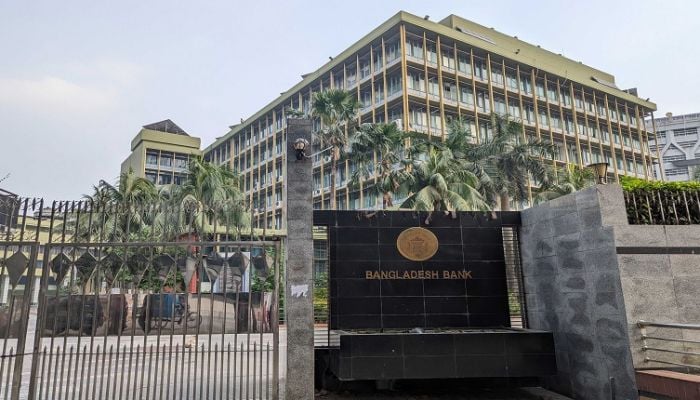Staff Correspondent
Published:2023-11-27 14:46:01 BdST
BB increases policy rate to control inflation
To control inflation, the Bangladesh Bank (BB) on Sunday increased the policy interest rate by 50 basis points to 7.75%.
Apart from this, the special repo interest increased to 9.75%, which will become effective from today.
Earlier in October, the central bank had already increased the repo rate by 75 basis points to 7.25%.
The policy rate, which is also known as the repo rate, is the interest rate at which the central bank of a country lends money to commercial banks.
The monetary policy committee decided to raise the policy rate at a meeting held on 22 November. The central bank issued a press release on Sunday in this regard.
As a result of the rise in the repo rate, the interest rate at the customer level will increase, which will decrease the money supply in the market as the government has set a target to reduce inflation to 8% in December and 6% by June next year.
Four new decisions were taken in the monetary policy committee meeting, including increasing the policy interest rate. In addition to the policy rate, the Bangladesh Bank has also raised the SMART (Six Months Moving Average Rate of Treasury Bill) rate by 25 basis points to 3.75% which was 3.50% earlier. Now, the smart rate is 7.43%, and banks can add up to 3.5% interest. After incorporating the SMART rate into the treasury bill rate of 7.43%, the lending rate will surge to 11.18%.
The lower limit of reverse repo, now called Standing Deposit Facility (SDF), interest rate increased by 50 basis points from 5.25% to 5.75%. If there is surplus money in the market, the Bangladesh Bank withdraws it by increasing the reverse repo interest.
The upper limit of the policy interest corridor increased by 50 basis points to 9.75% from 9.25% on the special repo or SLF-standing lending facility. In this system, banks in crisis borrow money from the Bangladesh Bank at high-interest rates.
As a result, the interest rate of the money that banks borrow from the central bank will increase. Besides, the interest rate of deposits kept in banks and bank loans will also increase.
The Bangladesh Bank always says that the high price of the dollar is the main cause of inflation. Now the central bank is trying to reduce inflation by increasing the interest rate. Food inflation has been above 12% last three months. According to the Bangladesh Bureau of Statistics, food price inflation was 12.56% in October, the highest in the last 11 years and 9 months. General inflation also rose slightly to 9.93% in October.
So, the Bangladesh Bank has strengthened its ongoing efforts to make the dollar exchange rate market-oriented and will continue it in the future as well.
Unauthorized use or reproduction of The Finance Today content for commercial purposes is strictly prohibited.


